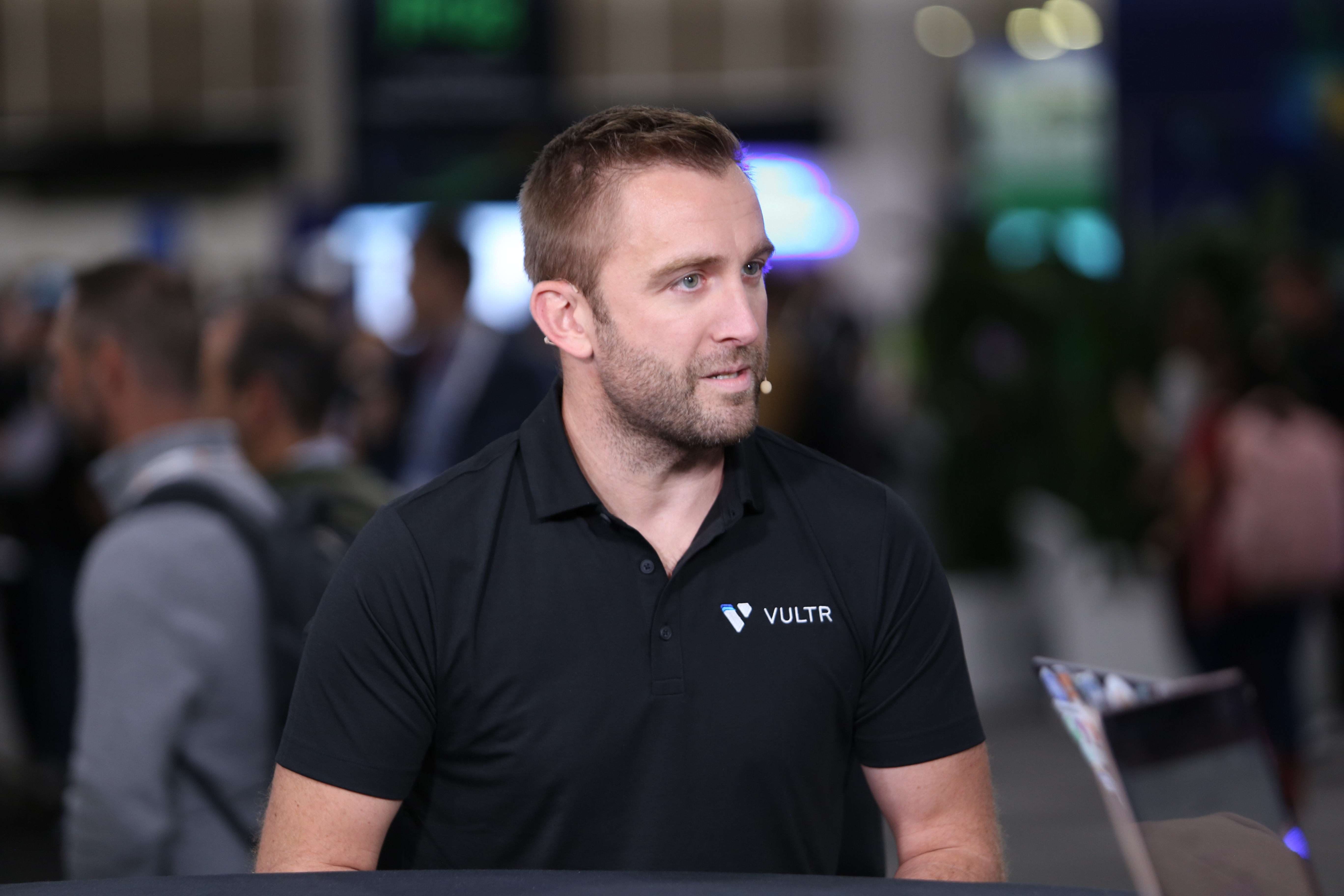 AI
AI
 AI
AI
 AI
AI
Kubernetes AI deployment is revolutionizing the way organizations integrate artificial intelligence into their operations, providing scalable, efficient solutions that enhance performance and prioritize security in cloud environments.
Vultr leading the charge in scalable cloud solutions, according to Nathan Goulding (pictured), senior vice president of engineering at Vultr. The company’s infrastructure enables delivery to 90% of the global population in under 40 milliseconds, crucial for web applications and AI model deployment. Kubernetes is well-suited for deploying generative AI and large language models, particularly at the edge near users.

Vultr’s Nathan Goulding talks to theCUBE about Kubernetes AI deployment.
“We’ve seen multiple waves of the evolution of gen AI and large language models, and I think that it’s really exciting to see this next wave that’s just about to come upon us, which is agentic AI,” Goulding said. “What that means is that the first wave of large language models … they’ve been trained on a generic data set. I think that a lot of enterprises today are trying to figure out the best way to incorporate that large language model into their business because they’ve heard a lot about it.”
Goulding spoke with theCUBE Research’s Savannah Peterson and Rob Strechay at KubeCon + CloudNativeCon NA, during an exclusive broadcast on theCUBE, SiliconANGLE Media’s livestreaming studio. They discussed how Vultr leverages Kubernetes and cloud infrastructure to enable scalable, secure and efficient deployment of AI-driven applications globally. (* Disclosure below.)
Organizations are increasingly focused on responsibly integrating AI into their applications, with only 1% of corporate data currently utilized in large language models. This highlights a significant opportunity for enterprises to unlock value by securely architecting AI-driven systems that leverage their proprietary data, Goulding pointed out.
“There is a huge amount of emphasis on what is the responsible way to introduce these models to the organization,” he said. “I think that there’s one thing to have a developer and a development environment play around with a large language model and saying, sure, that’s fine, but the moment that you say OK, we’re going to actually put this into production, a lot of questions come up. Those questions really involve data governance, privacy, security, who’s going to get access to that data.”
Vultr’s success and rapid growth stem from a relentless focus on operational efficiency and customer satisfaction. Platform engineering teams prioritize consuming fundamental cloud infrastructure, particularly VMs and bare metal, to deploy applications using Kubernetes as the standard, Goulding explained.
“If you survey everyone around here at KubeCon, there’s a lot of platform engineering teams. What’s the prime remit of platform engineering teams? It’s to consume fundamental cloud infrastructure,” Goulding said. “That could be in the form of cloud infrastructure from hyperscalers. It could be cloud infrastructure in on-prem environments. But consuming infrastructure and then exposing a programmatic way for their application developers to deploy their application onto that platform … and Kubernetes obviously is the de facto standard on how to do that.”
Here’s the complete video interview, part of SiliconANGLE’s and theCUBE Research’s coverage of KubeCon + CloudNativeCon NA:
(* Disclosure: Vultr sponsored this segment of theCUBE. Neither Vultr nor other sponsors have editorial control over content on theCUBE or SiliconANGLE.)
Support our mission to keep content open and free by engaging with theCUBE community. Join theCUBE’s Alumni Trust Network, where technology leaders connect, share intelligence and create opportunities.
Founded by tech visionaries John Furrier and Dave Vellante, SiliconANGLE Media has built a dynamic ecosystem of industry-leading digital media brands that reach 15+ million elite tech professionals. Our new proprietary theCUBE AI Video Cloud is breaking ground in audience interaction, leveraging theCUBEai.com neural network to help technology companies make data-driven decisions and stay at the forefront of industry conversations.